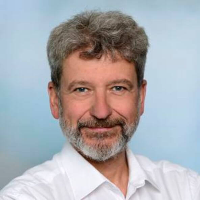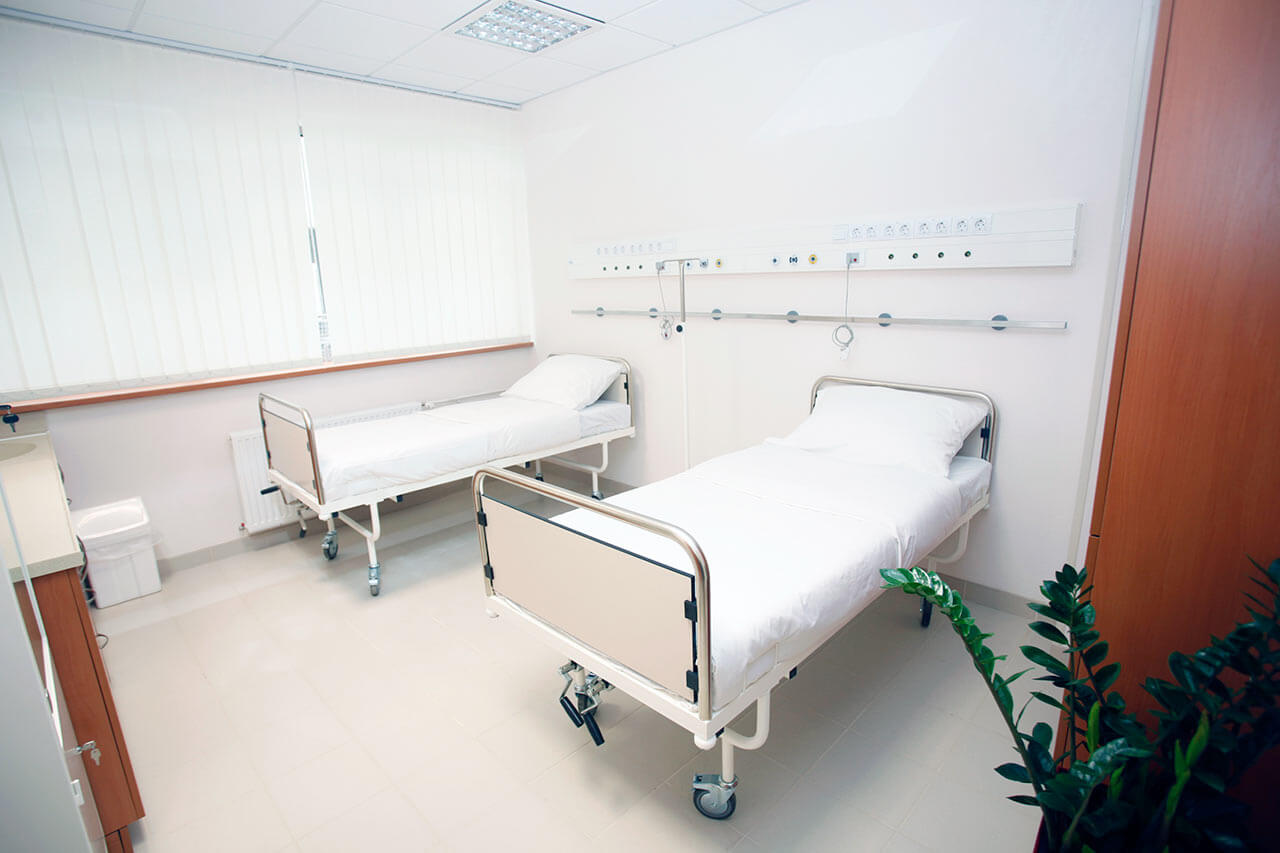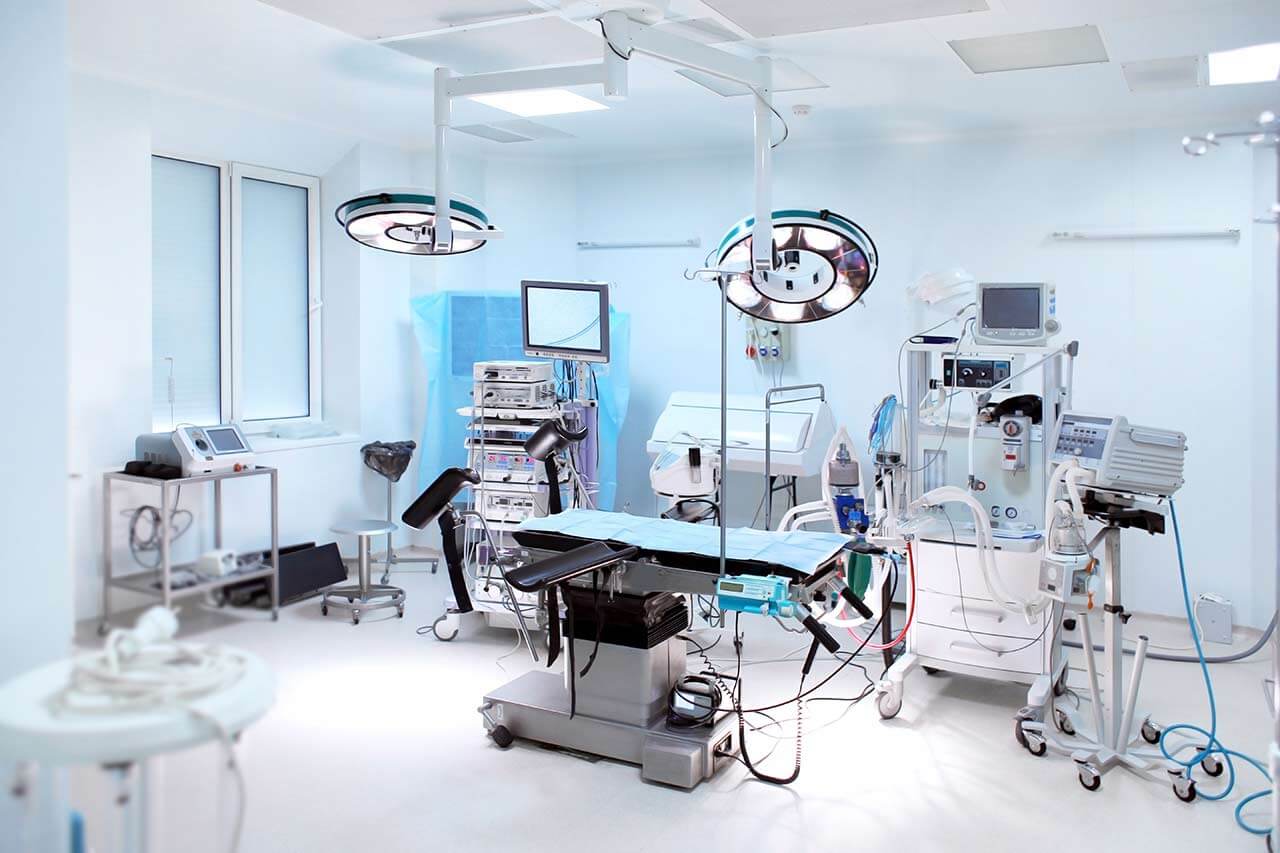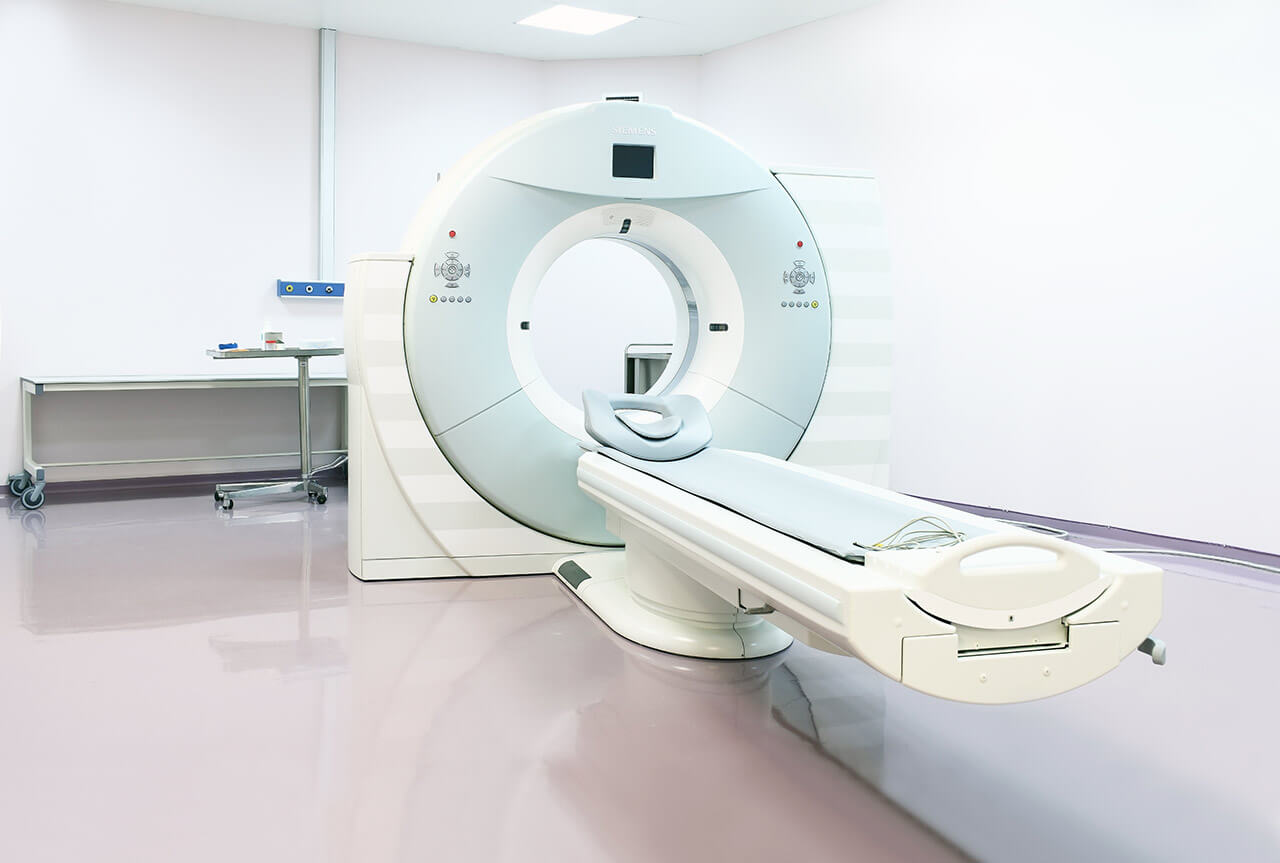
The program includes:
- Initial presentation in the clinic
- clinical history taking
- review of medical records
- physical examination
- laboratory tests:
- complete blood count
- inflammation indicators (CRP, ESR)
- indicators of blood coagulation
- tumor markers
- blood gas analysis
- chest x-ray
- high-resolution computed tomography (HRCT)
- MRI scan of chest (on indication 1200 €)
- pulmonary function test
- biopsy of lymph node with histological examination (on indication 2500 €)
- nursing services
- consultation of related specialists
- consultation of the chief physician and all leading experts
- development of individual treatment plan
- written statement
Required documents
- Medical records
- Chest MRI/CT scan (if available)
Service
You may also book:
 BookingHealth Price from:
BookingHealth Price from:
About the department
The Department of Thoracic Surgery at the Asklepios Hospital Barmbek Hamburg provides effective surgical treatment for the full range of lung conditions and chest organ diseases, with the exception of heart pathologies. The team of surgeons specializes in operations for lung cancer, pleural mesothelioma, pleurisy, pneumothorax, pleural empyema, traumatic chest injuries, and chest malformations. Many operations are performed using minimally invasive techniques, which contribute to a shorter hospital stay and faster patient recovery. The department has more than 20 years of experience in the field of minimally invasive interventions on chest organs, so patients can count on the high professionalism of specialists and the best treatment results. The department's thoracic surgeons cooperate closely with pulmonologists, and during the treatment of cancer, oncologists, radiation therapists, radiologists, and other specialists are actively involved in the therapeutic process. Prior to the operation, the patient is fully informed about the peculiarities of the upcoming surgical procedure, the period of postoperative recovery, and possible risks. During the treatment, great importance is attached not only to the provision of top-class medical care but also to the comfort and psychological support of the patients. The Head Physician of the department is Dr. med. Klaus Diemel.
One of the key focuses of the department's specialization is lung cancer surgery. The department's surgeons have unique knowledge of the treatment of all forms of this disease, ranging from slow-growing tumors to rapidly progressing tumors and metastatic cancer, which may lead to death within months if left untreated. A treatment regimen is elaborated individually, taking into account the particular clinical case. Comprehensive examinations of the lungs and heart are mandatory before any surgical intervention. In most cases, surgery is combined with chemotherapy and/or radiation therapy, which can be carried out both before and after the surgical procedure. Lung cancer surgery is quite often performed using video-assisted thoracoscopic surgery (VATS). This is a minimally invasive surgical intervention. When performing the operation, the doctor makes only one or two small incisions through which the affected tissue is removed with the help of special instruments. This surgery will be effective mainly in the early stages of lung cancer, when the tumor has not reached a large size and is located within the lung. The results of minimally invasive operations for lung cancer are comparable to open surgery.
It should be noted that the department has more than 20 years of experience in minimally invasive thoracic surgery and gives preference to this sparing method if clinically indicated. However, in cases of metastatic tumors, surgeons perform open surgery, in which even minor pathological changes can be eliminated. The following two methods can be used to remove lung metastases: classical surgery (the part of the lung affected by metastases is removed with a scalpel) and laser surgery (the part of the lung affected by metastases is removed with a surgical laser, which helps to preserve more healthy tissue).
The department's team of thoracic surgeons successfully operates on patients with pleurisy. This condition causes the accumulation of exudate or pus in the patient's pleural cavity. Pleurisy is often a consequence of inflammatory diseases or malignant tumors in the lungs or pleura. The main symptoms of pleurisy are shortness of breath and severe pain. Without treatment, there is a high risk of developing acute respiratory failure due to the compression of lung tissue by accumulating exudate. Operations for the treatment of pleurisy are performed in the department using minimally invasive techniques, so there is no need for a long hospital stay.
Patients with pneumothorax can also receive medical care here. This disease is characterized by an accumulation of air in the pleural cavity, which leads to partial or complete lung collapse. The most common type of disease is primary spontaneous pneumothorax, which occurs for no apparent reason, causing severe shortness of breath and pain. Pneumothorax most commonly affects young men. The department also operates on patients with traumatic pneumothorax, which develops due to a chest injury, for example, as a result of an accident, stabbing, or gunshot wounds. In many cases, the department's doctors manage to get rid of the pneumothorax by puncture, and surgery is performed only in complex clinical cases. The specialists always give preference to minimally invasive surgical techniques.
The department's clinical focuses include:
- Surgery for malignant diseases of the respiratory system
- Surgery for lung cancer
- Surgery for pleural mesothelioma
- Surgery for lung metastases: classical and laser interventions
- Surgery for benign diseases of the respiratory system
- Surgery for pleurisy
- Surgery for primary spontaneous and traumatic pneumothorax
- Surgery for pleural empyema
- Surgery for traumatic chest injuries
- Surgery for chest deformities: pectus excavatum and pectus carinatum
- Other surgical options
Curriculum vitae
Higher Education and Professional Career
- Medical studies, Free University of Berlin.
- 1986 Research Fellow, project called "Non-invasive diagnosis of graft rejection after heart transplant surgery" of the German Research Foundation (DFG), Department of Cardiothoracic Surgery, German Heart Center Berlin.
- 1988 Internship, Department of Cardiothoracic Surgery, German Heart Center Berlin.
- 1991 Thesis defense, magna cum laude, Free University of Berlin. Subject: "Intramyocardial electrogram (IMEG) for non-invasive diagnosis of graft rejection after heart transplant surgery".
- 1992 Work in the Department of Surgery, Charite University Hospital Berlin.
- 1994 Work in the Department of Trauma Surgery and Reconstructive Surgery, Charite University Hospital Berlin.
- 1998 Work in the Department of Thoracic Surgery, Grosshansdorf Hospital.
- 2008 Senior Physician and Deputy Head Physician, Department of Thoracic Surgery, Hospital Grosshansdorf.
- 2009 Head, Section of Thoracic Surgery, Department of General, Abdominal, Thoracic and Vascular Surgery, St. Mary's Hospital in Hamburg.
- Since 2013 Head Physician, Department of Thoracic Surgery, Asklepios Hospital Barmbek Hamburg.
Membership in Professional Societies
- German Society of Surgery (DGCH).
- German Society for Thoracic Surgery (DGT).
- European Society of Thoracic Surgeons (ESTS).
- German Interdisciplinary Association for Intensive Care and Emergency Medicine (DIVI).
- Working Group on Intensive Care and Emergency Medicine (CAIN) of the German Society of Surgery (DGCH).
- Working Group on Perioperative Medicine (CAPM) of the German Society of Surgery (DGCH).
- German Cancer Society (DKG).
- Working Group on Thoracic Surgical Oncology of the German Cancer Society (DKG).
- Society of North-West German Surgeons.
- Working Group on Lung Cancer in Northern Germany (NBA).
- North German Society for Pneumology (NdGP).
- Hamburg Association for Intensive Medical Care.
- Lungennetz Nord Network of Competence Centers for Lung Diseases.
Photo of the doctor: (c) Asklepios Klinik Barmbek
About hospital
The Asklepios Hospital Barmbek Hamburg is an academic hospital of the University of Hamburg. The hospital was opened in 2005, and today it is one of the best and most modern medical centers in Europe. The priority areas of specialization of the medical facility are emergency medical care and comprehensive treatment of cancer, urologic diseases, gastrointestinal diseases, and pulmonary diseases, as well as abdominal surgery and thoracic surgery. The hospital provides patients with top-class medical services that meet international standards.
The hospital has 620 beds. More than 36,000 inpatients and about 74,000 outpatients are treated here every year. The patients' health is in the safe hands of a highly professional team of over 1,600 doctors and nursing staff.
The hospital offers high-quality diagnostic and therapeutic services and strictly follows current clinical protocols. The hospital boasts modern infrastructure and state-of-the-art medical equipment. The hospital is one of the few in Europe where patients are successfully operated on using the da Vinci surgical system. The hospital also houses well-equipped endoscopy rooms, cardiac catheterization laboratories, laser surgery rooms, and operating rooms for arthroscopic interventions. All these technical resources contribute to effective and, at the same time, minimally traumatic treatment.
It is worth noting that the hospital has vast experience in serving international patients. According to the Medical Travel Quality Alliance (MTQUA), the Asklepios Hospital Barmbek Hamburg ranks among the top three medical centers worldwide for medical tourism.
The medical center also holds the international DIN EN ISO 9001:2015 quality certificate, attesting to the excellent medical services provided. For its outstanding achievements in oncology and surgery, the hospital has been awarded certificates from the German Cancer Society (DKG) and the German Society for General and Visceral Surgery (DGAV).
Photo: (с) depositphotos
Accommodation in hospital
Patients rooms
The patients of the Asklepios Hospital Barmbek Hamburg live in comfortable single and double rooms. Each patient room has an ensuite bathroom with a shower and a toilet. The patient room furnishings include an automatically adjustable bed, a bedside table, a table and chairs for visitors, a TV, a radio, and a telephone. Wi-Fi access is also available in the patient rooms.
Patients can also be accommodated in enhanced-comfort rooms, which additionally include a rest area with upholstered furniture and a working area with a desk and a reading lamp. The bathroom in the enhanced-comfort rooms includes necessary toiletries, changeable towels, bathrobes, slippers, and a hairdryer. The enhanced-comfort rooms correspond to the standards of a high-class hotel.
Meals and Menus
The hospital offers tasty and balanced meals. Patients receive several menus to choose from and can see the menu in advance using a special mobile application. The hospital takes patients' food preferences into account and offers a wide range of dietary and vegetarian dishes. Breakfast, lunch, and dinner are served in the patient's room.
There is a cozy cafeteria on the first floor of the hospital where one can enjoy a cup of aromatic coffee or delicious tea with a dessert. The cafeteria offers a wide selection of snacks and salads.
There is a small store on the territory of the hospital where one can buy fresh fruits, yogurts, sweets, and magazines.
Further details
Standard rooms include:
Religion
There is a prayer room on the first floor of the hospital where patients can find solitude for prayer.
The hospital has an evangelical pastor who is happy to talk with patients and support them in the process of their treatment.
Representatives of other religions are available upon request.
Accompanying person
Your accompanying person may stay with you in your patient room or at the hotel of your choice during the inpatient program.
Hotel
You may stay at the hotel of your choice during the outpatient program. Our managers will support you for selecting the best option.





